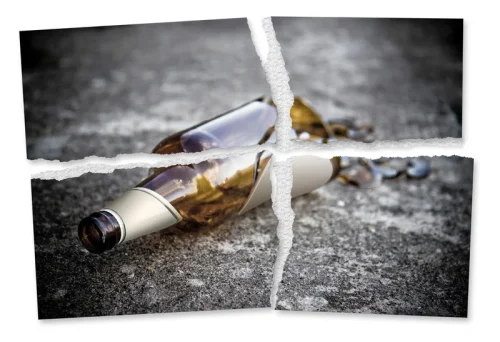
Ignoring or denying the difficult and painful consequences of alcohol addiction will only make things worse. In fact, by the time families reach out for help with a loved one’s alcoholism, the disease may have progressed to a crisis level involving an accident, lost job, arrest or medical emergency. The short-term effects of alcohol abuse can make people prone to violent behavior, injuries and accidents. Tables 3 and and44 focus on 176 AUD offspring who were primarily European American, 40% of whom were women, 29% had ever been married, and individuals who reported on average 15 years of education. Sixty-two percent met interval criteria for alcohol dependence, they reported on Alcoholism and Denial average 11 maximum drinks per occasion and endorsed an average of four AUD criteria. One in five smoked cigarettes in the prior 5 years, 80% used cannabis, 19% had a cannabis use disorder, and 37% had used other illicit drugs, including 3% who developed a SUD on those substances.
Why Do People Use Denial to Cope With Alcoholism?

In some families, alcoholism may be normalized or even enabled, making it difficult for someone to recognize their problem. Family members may unintentionally support the individual’s denial by minimizing the issue, making excuses, and even covering up the consequences of their loved one’s alcohol abuse. It is important to address the impact of family dynamics on their understanding and acceptance of the issue.

Signs your loved one is in denial
“You can’t make me” becomes a battle alcoholics can win, while ultimately losing the war. A more appropriate way to screen patients for alcohol impairment would be to use a standardized and more detailed review of patterns of drinking and alcohol-related problems such as the ten item AUDIT. This instrument takes only a few minutes complete and can be filled out by patients in the waiting room (Babor, 2001; Sanchez-Roige et al., 2019). Such standardized approaches might be especially useful for identifying high functioning individuals with AUDs whose SES might erroneously imply that they are less likely to have alcohol problems. It can be difficult to help someone with AUD who is in denial about their drinking, but there are ways you can start the conversation. It’s important to stay calm, supportive, and non-judgmental throughout any conversation and to remember that acknowledging AUD can be overwhelming and frightening.
- By providing education and guidance within this framework, we empower individuals to confront their denial head-on while offering them tools for sustained sobriety.
- Comparisons included demography, alcohol-related patterns and problems, drug use, as well as impulsivity and sensation seeking.
- Overcoming denial and creating a path to a better future is achievable with empathy, persistence, and expert assistance.
- Education plays a crucial role in increasing awareness of the consequences of alcoholism, particularly for those in denial.
- People must first realize and accept that they have a drinking problem in order to get over this obstacle.
- The evaluation consists of 11 yes or no questions that are intended to be used as an informational tool to assess the severity and probability of a substance use disorder.
What is an Alcoholic Narcissist?

Alcoholism and alcohol abuse can also have an impact on your family, friends and the people you work with. When trying to help an alcoholic in denial, there are crucial steps to follow and key factors to consider to encourage the person to seek help and support. Here are some strategies for effective intervention and ways to find professional assistance. Finding support through groups like Al-Anon or therapy can offer solace and understanding unique to your situation.
- If you feel that any of our content is inaccurate, out-of-date, or otherwise questionable, please contact at
- This could happen in the form of an overdose or other major health event, legal trouble, or relationship strain or loss.
- In rehab, people undergo alcohol detox, learn about the dangers of alcoholism and find new ways to avoid drinking.
- However, the proportions of probands who reported tolerance in the five years prior to interview decreased steadily with each subsequent interview.
- The problem is that alcoholism—or what doctors today refer to as “alcohol use disorder”—has taken hold.
Stop drinking
You spend a lot of time drinking, thinking about it, or recovering from its effects. You have few if any interests or social involvements that don’t revolve around drinking. Many drinking problems start when people use alcohol to self-soothe and relieve stress (otherwise known as self-medicating). Getting drunk after every stressful day, for example, or reaching for a bottle every time you have an argument with your spouse or boss. Engaging in self-care practices, such as exercise, proper nutrition, and maintaining a healthy sleep schedule, is also essential for managing stress during the recovery process. Recovery often involves a combination of individual and group therapy sessions.
Alcohol Use Disorder (AUD) is a medical condition that healthcare professionals can diagnose and treat. It’s characterized by excessive drinking, cravings for alcohol, the inability to control one’s drinking habits, and physical alcohol dependence. In severe cases of AUD, individuals may experience withdrawal symptoms when not using alcohol. These concepts are complex and likely to develop in response to widely held societal beliefs as well as mechanisms reflecting an individual’s traits regarding how they handle problems and their specific beliefs and behaviors. Denial is a common defense mechanism for those struggling with alcoholism, making it difficult for them to recognize the extent of their problem.

For some, blaming others protects them from taking responsibility themselves. Denial, blame and dishonesty may anger loved ones, but it is important to understand that these actions are a product of the disease rather than a true representation of the person’s character. (The Life Process Program is inexpensive.) They include the choices listed below. Discovering your child is drinking can generate fear, confusion, and anger in parents.





Comment here